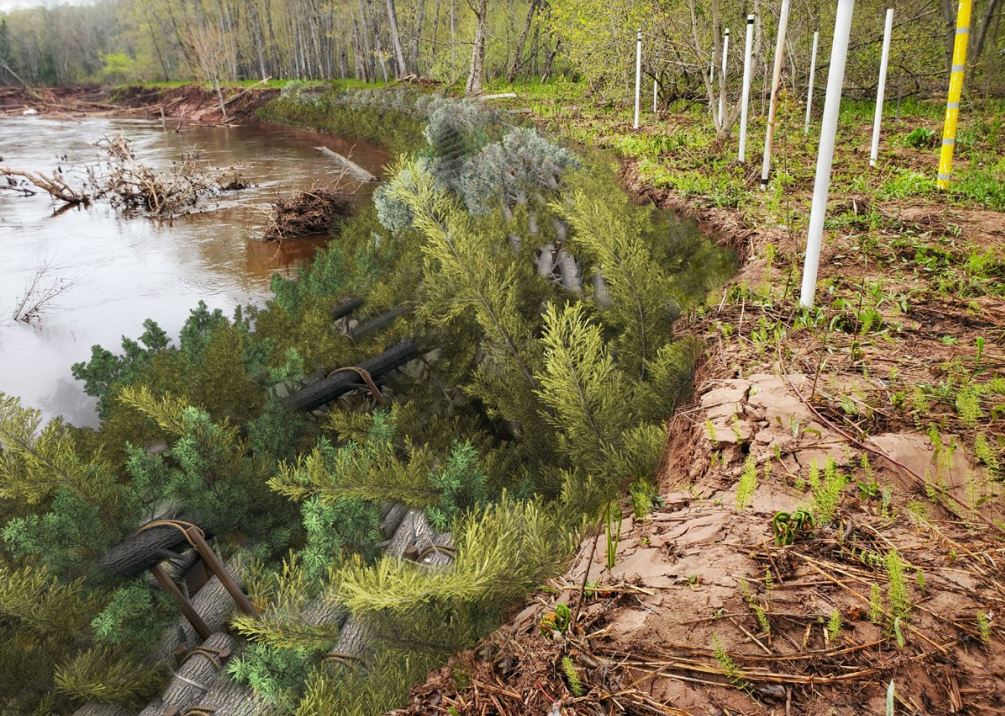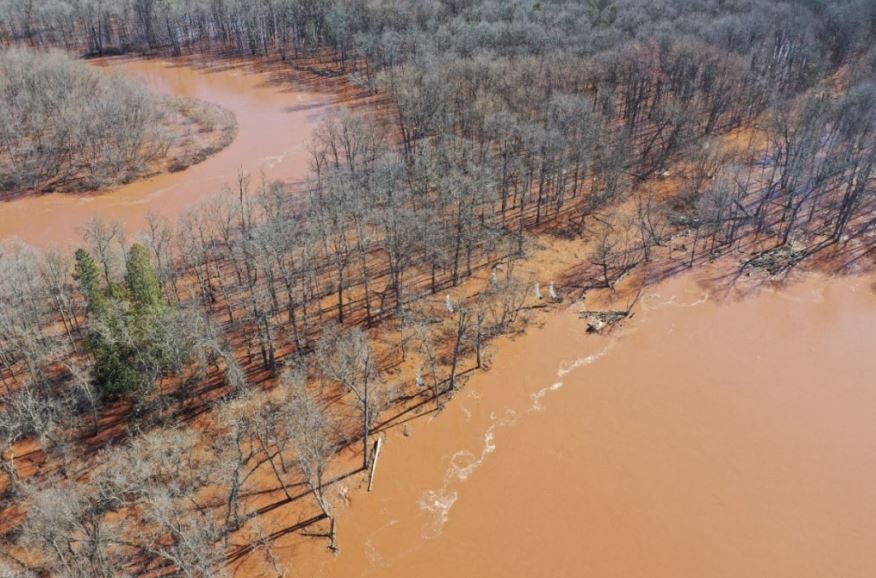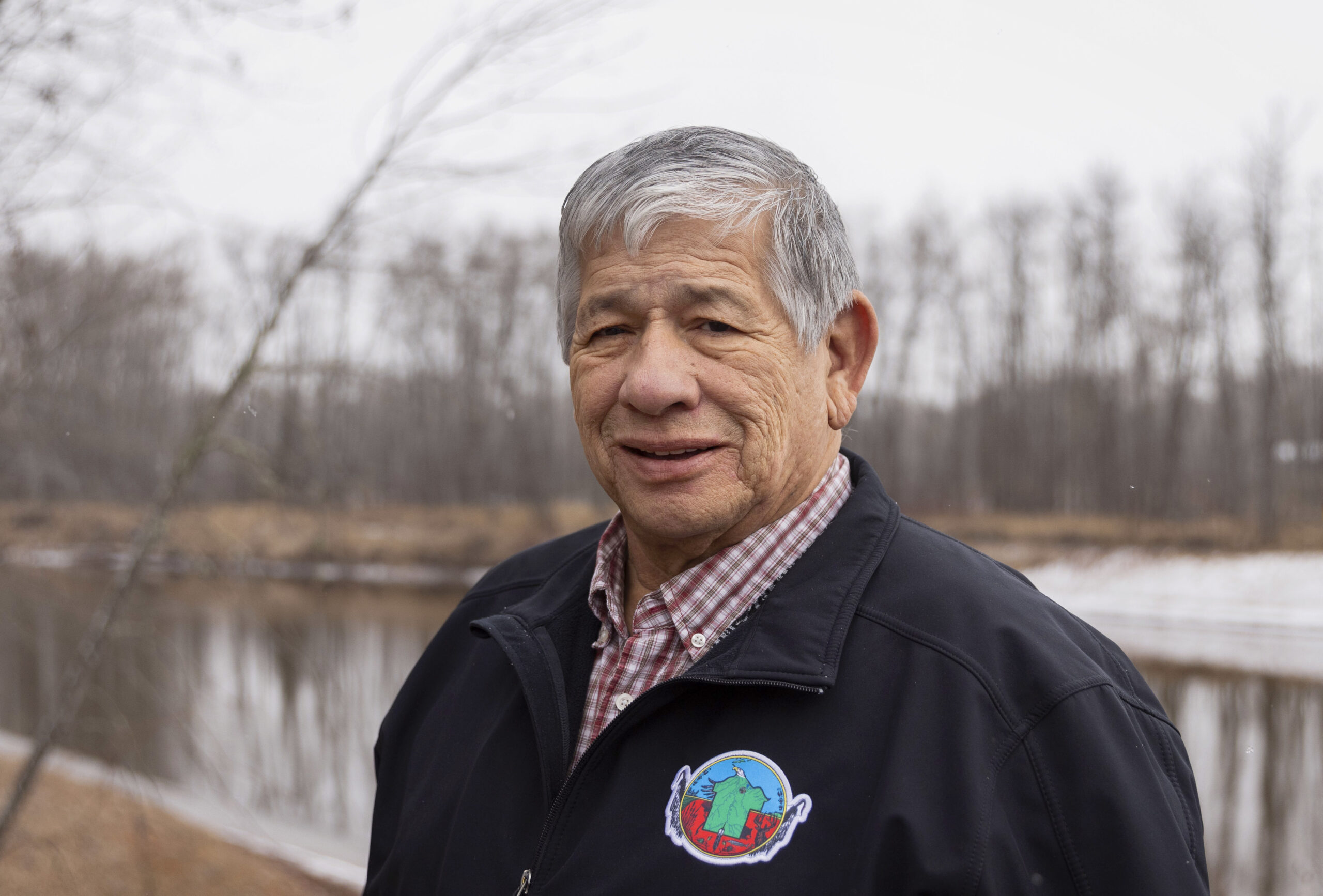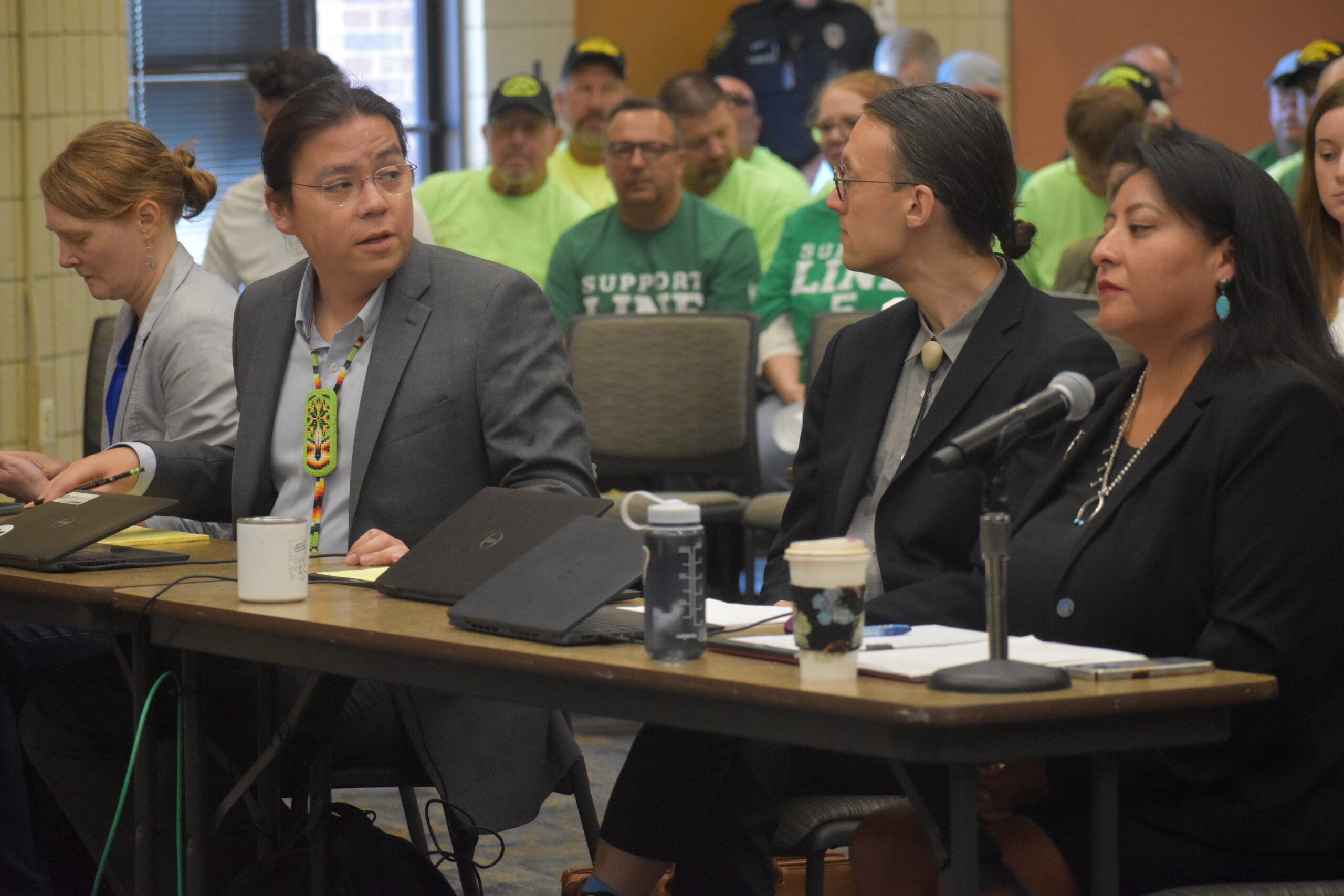A northern Wisconsin tribe has proposed a solution to slow riverbank erosion near a Canadian energy firm’s oil and gas pipeline to reduce the threat of a potential spill on tribal lands and resources.
In a July 5 letter to Enbridge, the Bad River Band of Lake Superior Chippewa proposed a plan to install interlocking and removable logs along the banks of the Bad River, or Mashkiiziibii, near the company’s Line 5 pipeline.
The tribe’s proposal comes amid a contentious, years-long feud over Enbridge’s operation of Line 5 on tribal lands after the tribal council allowed pipeline easements to expire more than a decade ago. In 2019, Bad River sued the company to force it to shut down and remove Line 5 from a dozen miles of tribal lands.
News with a little more humanity
WPR’s “Wisconsin Today” newsletter keeps you connected to the state you love without feeling overwhelmed. No paywall. No agenda. No corporate filter.
A federal judge has since found the company is trespassing on the tribe’s reservation, ordering Enbridge to pay $5.15 million and remove or reroute its pipeline by June 2026. That decision is currently being appealed. In the meantime, Bad River Tribal Chair Robert Blanchard said in a statement that he and tribal members live in fear “of forever losing our ability to fish, hunt, gather, and sustain our people in our homeland.”
“Enbridge should recognize our treaty-protected rights and rights to our land by ending its trespass and leaving our watershed,” Blanchard continued. “And we remain hopeful that the appeals court will order Enbridge to end its trespass promptly. But so long as Enbridge refuses to stop trespassing we must continue to pursue ways to reduce the risk created by Line 5.”
The company has previously submitted its own plans to address erosion that’s drawn the Bad River closer to its Line 5 pipeline, but the tribe has rejected the company’s proposals. Those included projects to install rocks or sandbags along the riverbank.
Last year, Enbridge sought approval to use a helicopter to install hundreds of trees along roughly 400 feet of the river’s shoreline to avoid further erosion from runoff or flooding. The company’s project would have included installation of docks and dams, as well as use a boat or trucks to move equipment. The work also would have temporarily affected almost four acres of wetlands.

Juli Kellner, an Enbridge spokesperson, said in a statement the company met with Bad River on Wednesday to discuss the plans with the tribe’s Mashkiiziibii Natural Resources Department and its consultants.
“Over the weekend we received a few more details, and appreciate the Band’s invitation to learn more, and work cooperatively to control erosion at the meander. Currently, we are in the process of reviewing available information,” Kellner said.
Wright Water Engineers, the tribe’s consultant and Denver-based engineering firm, developed the plan to install the interlocking logs referred to as “log jacks.”
Contrary to Enbridge’s proposal, Blanchard said in its letter the project reduces environmental impacts and shortens installation time. It also requires 90 percent fewer helicopter flights. The log jacks would be put together off-site and transported by truck to a site near the eroded area. A helicopter would be used to then lower the log jacks onto the riverbank. The tribe said the process would avoid the use of heavy equipment during installation.
Once they have served their purpose, Blanchard said the log jacks would be removed by helicopter. He directed the tribe’s natural resource officials and firm to work with Enbridge on the project.
In his statement, Blanchard said none of Enbridge’s previous proposals complied with environmental laws and said they infringed on the tribe’s treaty rights to hunt, fish and gather. He called the company’s methods experimental, risky and environmentally destructive to the river’s water quality.

While the tribe and company are often at odds, Blanchard noted Enbridge and the tribe previously worked together on the reservation to install a one-way valve for Line 5 to restrict the flow of oil in the event of a spill. Despite that, the Bad River chair said tribal officials reluctantly made its recent proposal to work with Enbridge on slowing erosion.
“We should not be in this position where protecting this sacred place means letting a trespassing corporation further interfere with Maskhiiziibii,” Blanchard said. “Other tribes aren’t made to endure continued trespasses. Responsible companies, including other oil companies, respect tribal rights without waiting for a court order.”
Blanchard said Bad River will continue to explore “every responsible avenue” to protect the tribe’s land and waters.
The proposal comes as the Biden administration urged a federal appeals court in April to reconsider a lower court order that would shut down Line 5 on the Bad River tribe’s reservation within three years.
The federal government argued the lower court’s ruling failed to adequately compensate the tribe. The U.S. Department of Justice said the case should be sent back for further review of a shutdown’s effects on the tribe’s treaty rights and trade relations between the U.S. and Canada.
The federal government’s position was a disappointment to the tribe, which had called on the Biden administration to support the immediate removal of Enbridge’s pipeline from tribal lands.
Wisconsin Public Radio, © Copyright 2025, Board of Regents of the University of Wisconsin System and Wisconsin Educational Communications Board.




